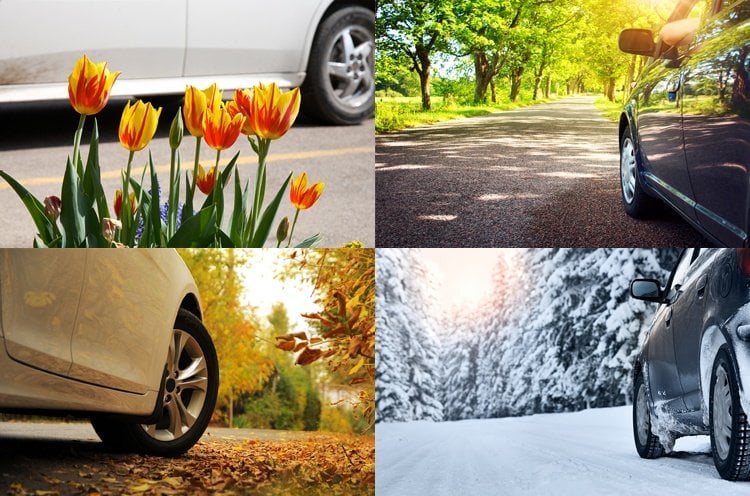What's the difference between 'All-Weather' and 'All-Season' tires?
What's the difference between 'All-Weather' and 'All-Season' tires?
Posted on December 10, 2019
Let’s say you live in the city or the suburbs and you enjoy what you might call a ‘mild Canadian winter’—light snow, slush, and cold but not extreme temperatures. You probably don’t need winter tires, but you don’t want all-season tires. You want all-weather tires.

DIFFERENCE #1
All-weather tires offer winter safety and reliability.
All-weather tires bear the designated mountain snowflake winter tire symbol so you know they’ve passed requirements to be considered safe for severe winter conditions in Canada.
All-season tires don’t.
These tires offer safe performance only in spring, summer and fall.
DIFFERENCE #2
All-weather tires deliver precise braking.
All-weather tires use a special rubber compound that stays flexible at temperatures above and below 7 C for superior stability and grip on everything from bare asphalt to fresh snow.
All-seasons don’t.
These tires use a rubber compound that gets cold and hard at temperatures below 7 C. They can take up to 30 meters longer to stop on smooth ice, even at just -1 C, where thin layers of water make the road slippery.
DIFFERENCE #3
All-weather tires give you superior grip and cornering control.
All-weather tires have an aggressive tread pattern with thick, chunky tread blocks to bite ice and snow for reliable winter grip and stability.
All-seasons don’t.
They have a tread pattern designed for comfort and fuel economy: small, smooth tread blocks that slide on snow and ice.
DIFFERENCE #4
All-weather tires prevent slushplaning and hydroplaning.
Wide channels and grooves capture and push away water and slush so your tires always have a strong contact patch with the road. Slushplaning is the second most dangerous driving condition.
All-season tires don’t.
The thin channels of all-season tires clog with snow and slush in the winter, creating a slippery, unsafe surface.
All-weather tires give you significantly better performance on everything from wet and rough ice to soft snow and hard-packed snow. They often perform better on wet asphalt as well since they’re designed to double as a superior summer tire built to last.
Looking for the best all-weather tires so you can find one to suit your budget and your driving needs? Check out our infographic that introduces you to six all-weather tires for 2014, one for every budget and use, from off-roading to commuting.
Article from https://info.kaltire.com/whats-difference-weather-tires-season-tires/?fbclid=IwAR0LcuGYj49B3_MWnvrxvKpvuBobks8ninxB471-ThO6J5_2QoHiYNReRr4

